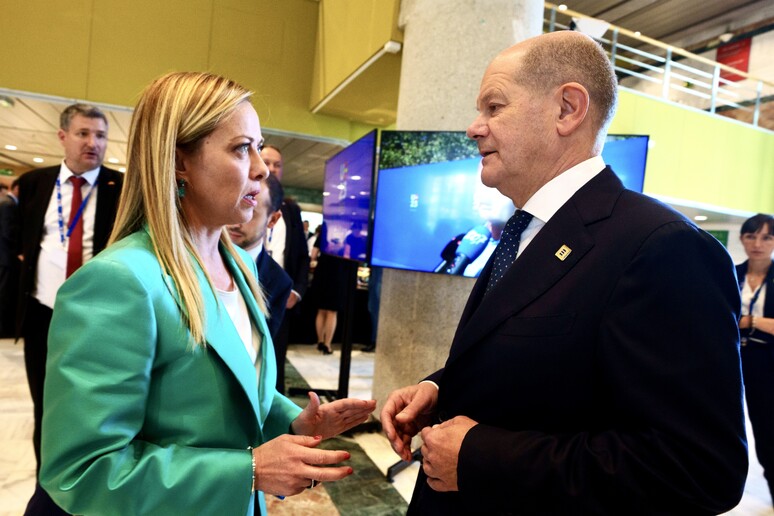Italian Premier Giorgia Meloni and
German Chancellor Olaf Scholz patched things up at a bilateral
meeting on the sidelines of the informal European Council
meeting in Granada on Friday after relations between Rome and
Berlin came under major strain due to the issue of migrants.
The meeting came after a spat over Germany's decision to fund
NGOs that carry out search-and-rescue operations in the central
Mediterranean and disembark rescued the migrants and refugees in
Italy.
There had also been differences between the two States over the
key crisis management section of the new EU pact on migration
and asylum, but agreement was reached on this on Wednesday after
Germany dropped an amendment.
The leaders expressed "satisfaction" at the agreement reached on
the Pact during the bilateral that lasted around 45 minutes, the
premier's office at Palazzo Chigi said on Friday.
The leaders reportedly "discussed the main European issues at
the heart of the Council, with a particular focus on the
migration issue, expressing satisfaction at the agreement
reached in Brussels on the regulation of crises".
Palazzo Chigi added that Meloni and Scholz, noting the excellent
level of cooperation between Rome and Berlin, agreed to meet at
the Italian-German intergovernmental summit in Germany at the
end of November.
Speaking after the summit, Meloni said Scholz agrees with the
policy Italy is promoting of boosting cooperation with Tunisia
and other African countries in order to stop the illegal arrival
of migrants to the EU.
The EU recently signed a Memorandum of Understanding with
Tunisia that Meloni was instrumental in bringing about.
"Chancellor Scholz is aware that the Italian strategy is the
only one that can be effective," Meloni said.
"He told me that we must keep going with this work in Tunisia.
"Everyone tells us that the work with Tunis must be replicated
with other countries in North Africa and beyond".
Scholz said that he has reached a good level of understanding
with Meloni.
"We have spoken frequently," Scholz told a news conference.
"We have found a very pragmatic understanding in these highly
intense conversations.
"We are both happy to have manage to find the last fundamental
element for European law on asylum.
"The reform has become possible".
He added that the funding to NGOs running migrant-rescue
operations was approved by the Bundestag and not by the federal
government.
Although the tension has eased between Berlin and Rome, there is
still considerable friction at the EU level.
Indeed, Poland and Hungary's opposition to the new Pact led to
there being no chapter on migration in the final declaration of
the Granada summit.
Under the pact, EU countries will be obliged to take a share of
the migrants that arrive in 'frontline' States like Italy or
Greece or pay for each migrant they refuse to receive.
Meloni, who has repeatedly said it is more important to stop
migrants arriving in the EU in the first place rather than
focusing on how to redistribute those that do arrive, said she
understands Budapest and Warsaw.
"We voted for the pact because the new rules are better than the
previous ones," Meloni said.
"But I did not make this a priority.
"It is the debate based on an old perception (of the migration
issue).
"Our position is different from that of Poland and Hungary
because of geographical issues.
"They understand the Italian position, I understand their
position perfectly and it does not compromise how we work
together".
ALL RIGHTS RESERVED © Copyright ANSA











